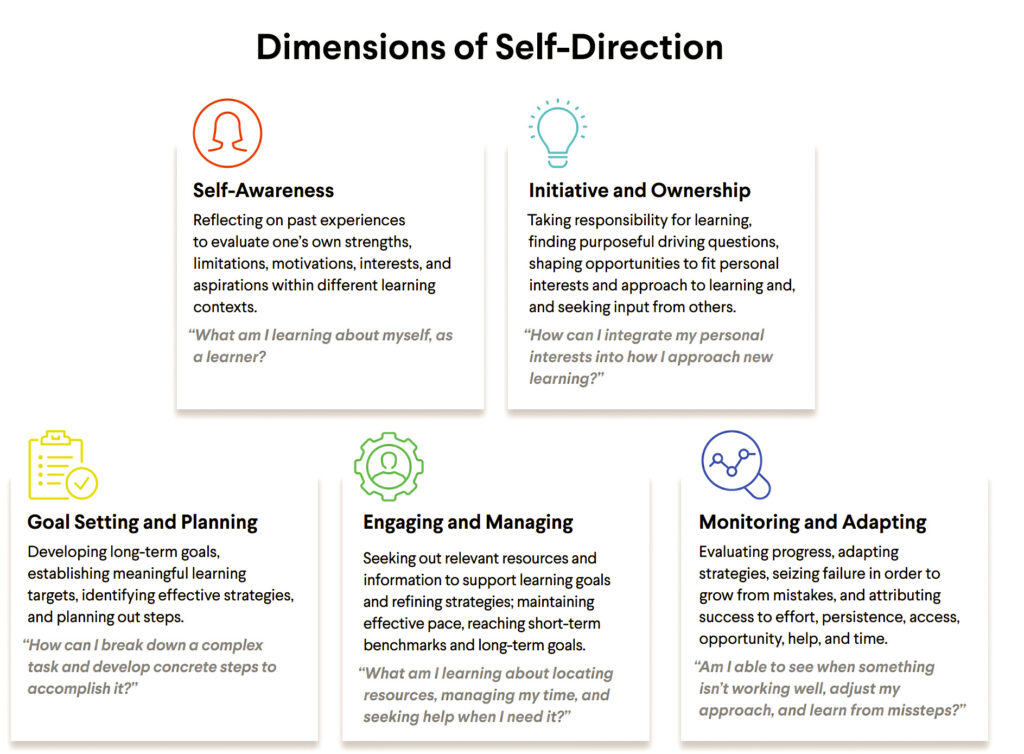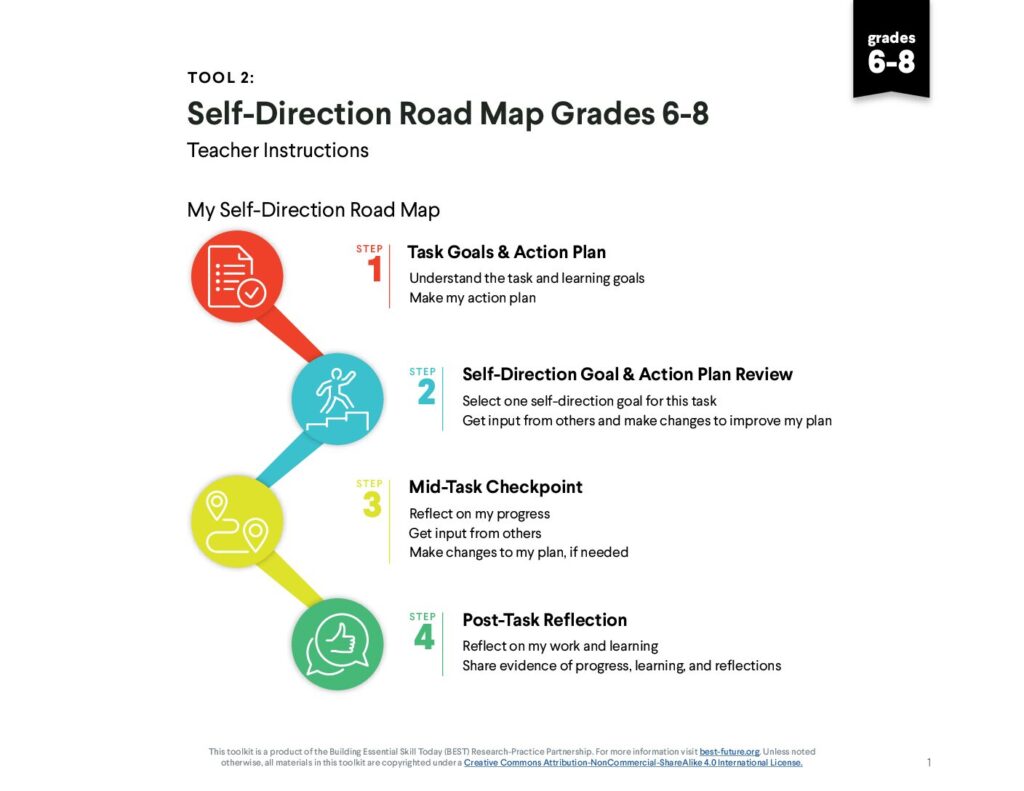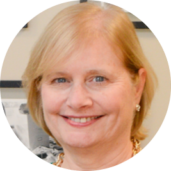Get support for student success - right in your inbox
NHLI | New Hampshire Learning Initiative
All Students Deserve a Quality Education
/ January 22, 2024
Beyond Compliance: Unlocking the Power of Self-Direction
Discovering the Dimensions of Self-Direction for Student Engagement
Self-direction is often considered compliance-oriented behavior such as attending class on time and bringing a charged device. However, those practices do not gauge students’ level of engagement in their learning or the important dimensions of self-direction such as goal setting and planning, initiative and ownership, and engaging and managing.

The Building Essential Skills Today for the Future (BEST)* research project team delved into the enduring and essential competencies of self-direction, collaboration, communication, and creativity–what NH calls work study practices–to uncover how we might support teachers with curriculum, instruction, and assessment resources. In the process we learned that:
- Focusing on the self-direction dimensions increases student agency because these skills go beyond compliance into active engagement in their learning.
- Students at all grade levels understand goal setting, taking initiative and ownership in their work, and managing and adapting their process along the way.
The BEST Self-direction Rubric is an instructional tool for teachers and students to identify the dimensions and specific skills of self-direction. Teachers unpack the language of the dimensions, and develop specific learning goals and success criteria for students so they can demonstrate their skills in the dimensions. The rubric is designed to be flexible and can be divided into “book marks.”
Irene Stinson, a 5th grade elementary teacher in NH, separates the rubric and focuses on one dimension at a time such as goal setting. Irene shares, “by breaking the rubrics into “book marks” students are able to develop a deeper understanding of the various components of each essential skill allowing them to reflect thoughtfully and purposefully as to their current abilities. When looking at the essential skills as a whole, they can be very daunting as they are very cumbersome. Breaking it down allows for a collective understanding of the skill between students and teacher.”

Sarah Barbato, a high school social studies teacher, uses the BEST Student Self-Direction Road Map (Tool #2) in an extended student research and writing project. Sarah shares that “the checkpoints support students in the process and result in a greater completion rate when the students use the roadmap to set their learning goals, tune the process with their peers, and reflect on their progress, making the necessary adjustments along the process.”
Embedded in the self-direction road map are the metacognitive activities. Irene, Sarah, and Beth incorporate the metacognitive dimensions of self-awareness and monitoring and adapting into learning experiences while providing time for students to reflect on their growth and practice their metacognitive skills.
The BEST project team, teachers, and students in their schools designed the BEST project rubrics and toolkits for the essential skills competencies using the Essential Skills and Dispositions Framework and research by Sarah Lench and her colleagues Erin Fukuda and Ross Anderson.
Opportunities exist for New Hampshire teachers to dive deeper into the BEST research and resources. Join the BEST PLACE team, a community of practice and a dedicated space for teachers investigating how to support students in developing the essential competencies of collaboration, self-direction, communication, and creativity. Click here to register for BEST PLACE.
* BEST
The BEST project involved a dynamic group of teachers and leaders in four New Hampshire school districts (Laconia, Rochester, Sanborn, and Souhegan), the New Hampshire Learning Initiative (NHLI), the National Center for Innovation in Education (CIE), the New Hampshire Department of Education, and KnowledgeWorks all powered by JFF with funding from the William and Flora Hewlett Foundation.
Categories: BEST (Building Essential Skills Today) For the Future Deeper Learning Competencies PLACE (Performance Learning and Assessment Consortium for Educators) Student Agency Student-Centered Learning WSP (Work Study Practices)
